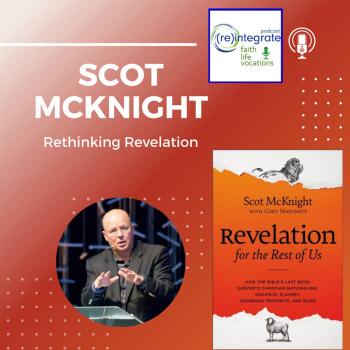![forgotten-ways-by-alan-hirsch[14]](https://www.re-integrate.org/wp-content/uploads/2013/02/forgotten-ways-by-alan-hirsch14.jpg) According to Alan Hirsch in The Forgotten Ways: Reactivating the Missional Church, a missional reading of the Great Commission (Matthew 28:18-20) “requires that we see that Jesus’s strategy is to get a whole lot of versions of him infiltrating every nook and cranny of society by reproducing himself in and through his people in every place throughout the world” (p. 113).
According to Alan Hirsch in The Forgotten Ways: Reactivating the Missional Church, a missional reading of the Great Commission (Matthew 28:18-20) “requires that we see that Jesus’s strategy is to get a whole lot of versions of him infiltrating every nook and cranny of society by reproducing himself in and through his people in every place throughout the world” (p. 113).
We must rid our churches of the pagan dualistic understanding of reality (see “Dualistic Christianity and the Church”) which assumes that we live and act in two separate domains, the “sacred sphere” and a “secular sphere.” “Sacred” activities include prayer, evangelism, worship, and other “Christian activities.” “Secular” activities include things like work, leisure, politics, shopping, and other “worldly activities” – that which is only second-tier importance or of no eternal significance.
A non-dualistic understanding of discipleship does not place church leadership as the pinnacle of Christian maturity. Rather, church leaders are supposed to equip the saints for the work of service (Ephesians 4:12) so that they can be the embodiment of Christ in every aspect of culture.
The goal is not so much to “save people” by attracting them into the church since we see it as God’s mediating institution in the world. No, the goal is to send people into the culture as incarnational “little versions of Jesus” invading every institution and sphere as God’s instruments for bringing all things under the Lordship of Christ and His Kingdom.
As Abraham Kuyper famously said,
“There is not a square inch in the whole domain of human existence over which Christ, who is sovereign over all, does not cry: ‘Mine!’”
When we understand that this is the mission of God in the world, we understand our role as being a movement to bring about this mission. And the mission is not simply to save people from this evil world, but to “restore and heal creation” (as Darrel Guder says in Missional Church: A Vision for the Sending of the Church in North America, p. 129).
Alan Hirsch makes the case that our ecclesiology must follow our missiology, which must follow our Christology.
![chistology-missiology-ecclesiology[36]](https://www.re-integrate.org/wp-content/uploads/2013/02/chistology-missiology-ecclesiology36.jpg)
Hirsch says,
“It is Christ who determines our purpose and mission in the world, and then it is our mission that must drive our search for modes of being-in-the-world” (p. 143).
Since our ecclesiology must be determined by our missiology which is ultimately determined by our Christology, “church” is the most malleable of these doctrines.
Jesus preached “the Good News of the Kingdom” (Matthew 4:23), and so that must be the church’s mission as well. But how that is done is based on the mission of a particular body of believers as they seek to incarnate the gospel to a particular people group.
The “missional-incarnational impulse” (as Hirsch calls it) will be awakened in the church when we intersect God, the world, and the church so that it is all one cohesive whole.
“Church is not something done in abstract from the world. Our evangelism and social action are communal, we join with God in redeeming the world (he’s already there), and our spirituality is of the all-of-life variety” (p. 239).
Image by caribb. Used with permission. Sourced via Flickr.












